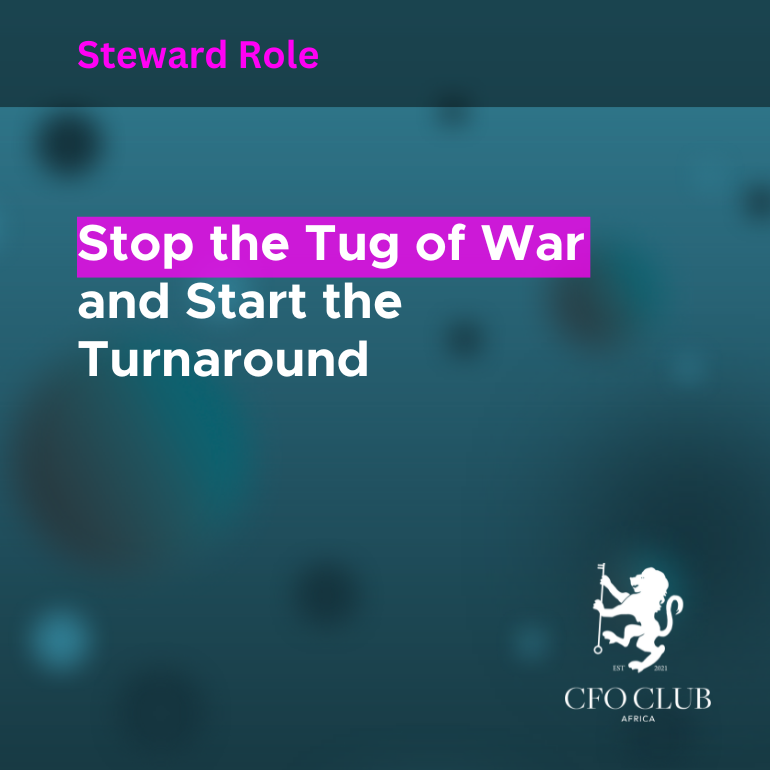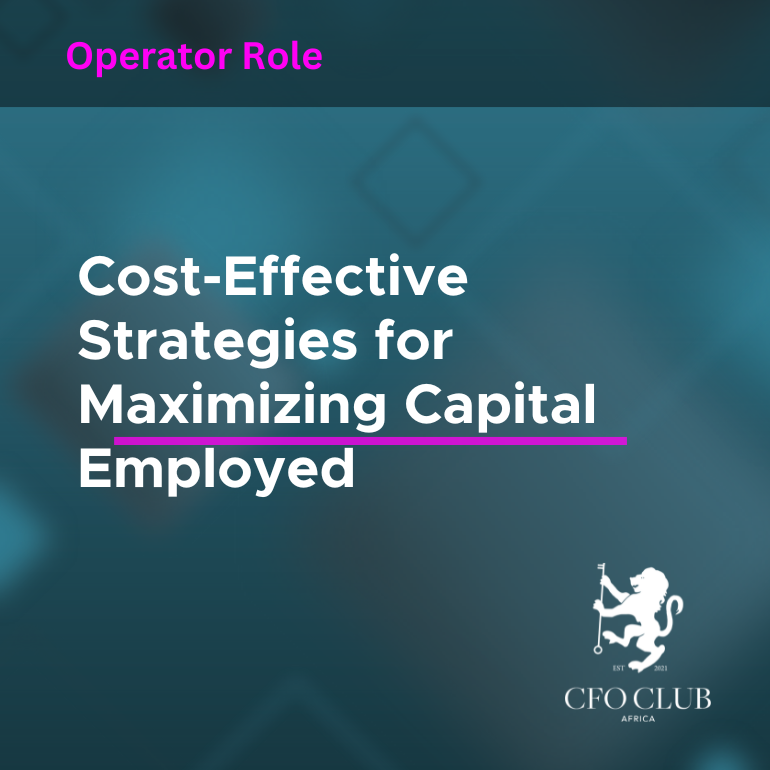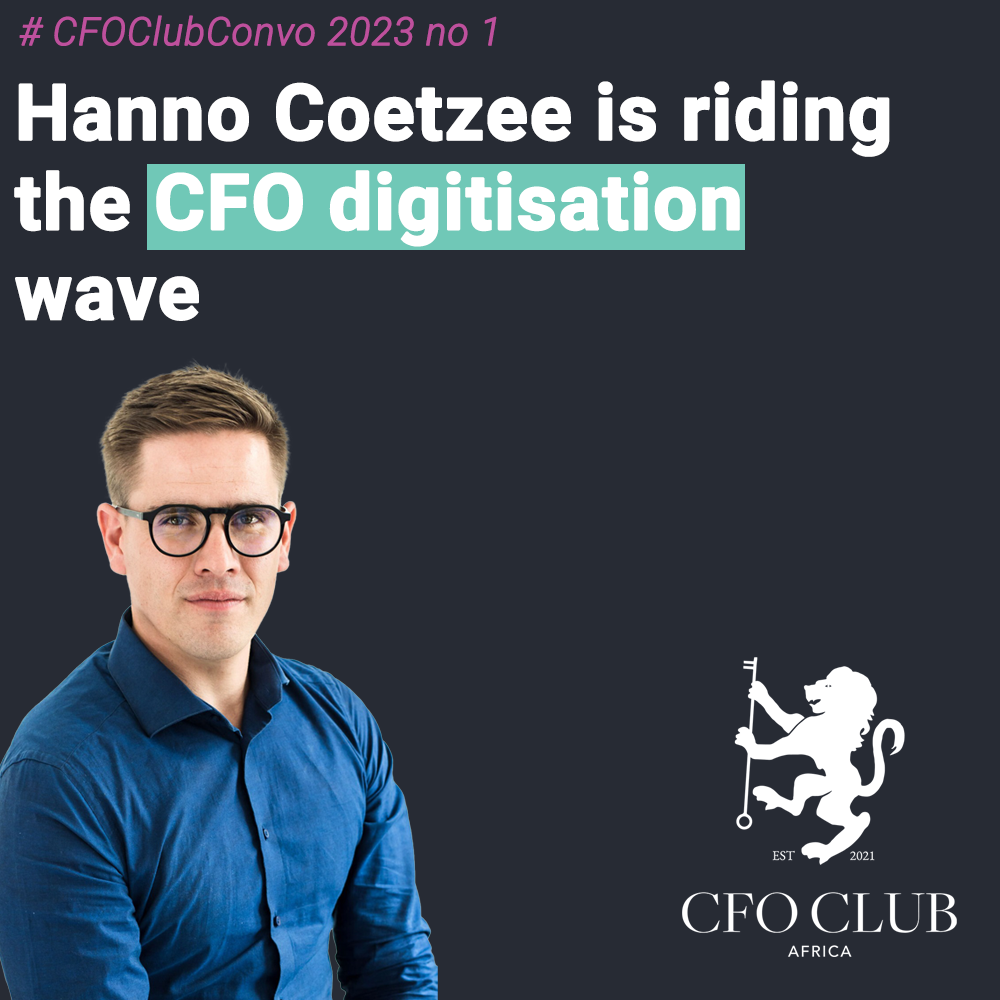Stop the Tug of War and Start the Turnaround
Conflict Resolution for CFOs Who Want to Win Without a Fight
As a CFO, you’re often the adult in the room. When tension rises—whether over budget allocations, risk appetite, performance metrics, or boardroom politics—all eyes turn to you. Not because you’re the loudest, but because you’re expected to bring clarity, calm, and commercial sense.
Conflict is unavoidable. But handled well, it doesn’t just go away, it turns into progress.
Your Role Isn’t to Mediate Personalities. It’s to Broker Outcomes.
Forget the idea that conflict resolution is a ‘soft skill’. For CFOs, it’s a strategic lever. You are not simply patching over disputes—you’re aligning agendas. You’re not trying to please everyone, you’re unlocking movement. The real power lies in shifting stakeholders from entrenched positions towards collaborative solutions that support financial sustainability and strategic execution.
Where others see noise and friction, you see opportunities to steer the organisation back to its objectives. And crucially, you do this without sacrificing rigour, accountability, or respect.
Where the Battles Happen—and Why You’re at the Centre
1. Budget Battles
These aren’t just about numbers, they’re about priorities, politics, and power plays.
When department heads lobby for more funding, they’re often defending their performance, their teams, or their legacy projects. And when you push back, it can feel personal. But this is where your strategic muscle comes in.
Use forecasting to show the bigger picture. Help teams understand how spend today impacts agility tomorrow. Provide scenario models: “If we approve this now, what does it mean for cash flow in Q3? What are we deferring?” Build credibility by showing that your goal isn’t to cut costs, it’s to enable smarter deployment of capital.
Host collaborative pre-budget meetings. Get cross-functional buy-in before numbers are finalised. Turn the process from a bidding war into a business alignment exercise.
2. Commercial vs Compliance
Sales want speed. Legal wants safeguards. Finance wants both. This tension is constant—and it’s where CFOs shine.
As the steward of risk appetite, you can’t just be the brake. You also need to be the gearbox—facilitating momentum with control. When commercial teams want to close deals with flexible terms, your role is to assess the downstream risk: Will this affect cash flow? Will it open us up to tax penalties? Are we slipping into grey areas that could trigger a regulatory issue?
Create a “go/no-go” framework based on financial and regulatory thresholds. It removes emotion from the decision and empowers teams to evaluate deals with clear criteria before escalation.
3. Executive Turf Wars
Even in the most sophisticated companies, egos collide. Strategy is often caught between people vying for influence.
This is where your neutrality is gold. Unlike other executives with defined ‘territories’, you work across functions. That gives you a platform to mediate objectively and pull everyone back to shared KPIs.
Listen for unspoken dynamics: Is this a personality clash or a deeper issue of misaligned incentives? Use financial impact as your anchor. “How does this disagreement affect EBIT? What’s the opportunity cost of inaction?” That framing can bring even the most territorial leaders back into constructive dialogue.
In high-stakes meetings, facilitate alignment by anchoring discussions to shareholder value. Keep returning the group to strategic outcomes—not personal wins.
4. Post-Merger Fallout
Few things test leadership like a post-deal environment. Redundancies, culture shock, system mismatches—conflict is inevitable.
CFOs are often tasked with delivering the synergies promised in the deal. But beneath the spreadsheet are people navigating fear, change fatigue, and identity loss. If those emotions are ignored, they turn into open resistance—and your integration timeline drags.
Your role is to bridge vision and reality. Yes, you must integrate systems and cut costs. But you also need to bring humanity to the numbers. Make space for feedback. Track not just financial milestones but cultural ones. Celebrate quick wins. And importantly, use transparent communication to rebuild trust.
Build a post-merger scorecard that measures financial and cultural integration. Make it clear that long-term success requires both.
How to Win Without Drawing Blood
Know what really matters to each party
Surface disagreements often mask deeper drivers. Someone arguing over a line item might actually be worried about losing influence. Another might fear being left out of strategic decisions. Recognising these drivers doesn’t mean indulging them—it means addressing what’s really at stake.
Ask “What’s your biggest concern here?” or “What would success look like for you?” It helps surface the interests behind the positions.
Don’t let data be the bad guy—use it as the bridge
Too often, CFOs weaponise data to shut down conversation. But data is more powerful when used to invite reflection and alternative paths.
“The data shows we’re above target in this area—could we redistribute some of that success to fund this other priority?” Framing data as a shared resource changes the energy in the room.
Reframe, always
Words matter. They either escalate or de-escalate. Reframing isn’t spin—it’s strategy. It moves the conversation from entrenched frustration to shared exploration.
Swap “We’re over budget” with “We’ve got an opportunity to reallocate resources more strategically.”
Lead the pause
Silence unnerves people. Use that. When conflict hits a peak, a deliberate pause slows down emotional reactivity and allows space for thought.
Ask, “Can we take a moment to think about what’s really most important here?” Then stop talking. Let the tension settle and re-centre the room.
Aim for alignment, not compromise
Compromise can feel like everyone loses a little. Alignment feels like everyone wins something meaningful. It’s about getting clear on why we’re all here—and shaping a solution that gets us there together.
Summarise shared goals: “We all want the product launched on time and within budget. Let’s explore options that respect both those aims.”
The Strategic Pay-Off
Resolve conflict well, and you don’t just diffuse tension, you enhance your influence.
People start coming to you earlier in the process. They see you not just as the gatekeeper of budgets, but as the enabler of progress. You become the person who clears the path for growth, protects the business from internal gridlock, and keeps the strategic engine humming.
And that? That’s leadership.
Conflict isn’t the enemy. It’s a signal that something matters. As CFO, your job isn’t to make it disappear, it’s to make it useful.





